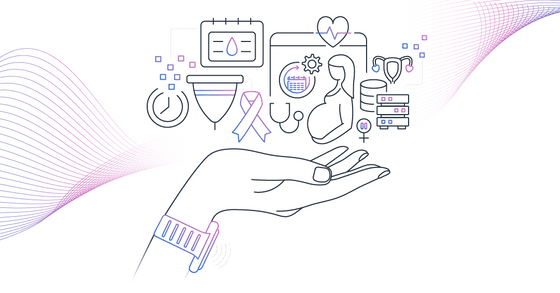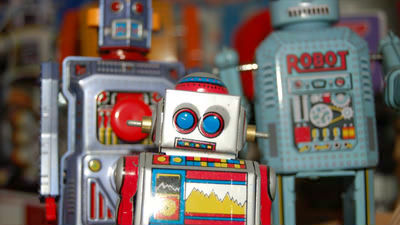What does Amazon's Chief Technology Officer (CTO) think of the ``technology trend predictions after 2024''?

Humans have enhanced their own abilities by making various inventions such as the printing press and the assembly line. In 2023, generative AI will make particularly dramatic advances, impacting every aspect of life, from email creation to software development to early cancer detection. Under such circumstances,
Tech predictions for 2024 and beyond | All Things Distributed
https://www.allthingsdistributed.com/2023/11/tech-predictions-for-2024-and-beyond.html
◆Generative AI becomes culturally aware
Large-scale language models will be trained on culturally diverse data to provide a more nuanced understanding of human experiences and complex social challenges, making generative AI more accessible to users around the world. .

Culture influences everything: the stories we tell, the food we eat, the way we dress, our values, our manners, our prejudices, the way we approach problems, the way we make decisions. For example, in Japan, slurping noodles is a delicious way to eat noodles, but in many cultures it is considered rude, and in Greece people spit on their dresses to pray for good luck. , different cultures have different meanings of actions. Vogels predicts that culture will play an important role in the design, implementation, and use of technology in the coming years.
Delivering large-scale language model-based systems to users around the world requires understanding and adapting to different cultures. The training data for many large-scale language models released as of 2023 is culturally Western-biased, with a response to an Arabic prompt that explicitly mentions Islam, such as having an alcoholic drink with a friend. There are cases where the content is culturally incorrect, such as when sentences are generated. Research has shown that the same prompt can generate more culturally appropriate responses when pre-trained on Arabic text, and Vogels is using large-scale language models trained on data from different cultures to interact with each other. By learning from each other, we can add diverse cultural perspectives to large-scale language models, enabling a more nuanced understanding of complex social issues.
◆Femtech is in full swing
Femtech, a technology that solves women's health issues, is gaining momentum.

Although women not only make up 50% of the population but also account for 80% of consumer health care decisions, modern medical trials and research are male-based, and women generally suffer from many diseases. These problems include being diagnosed later than men and having a 50% higher rate of misdiagnosis after a heart attack.
AWS, Amazon's cloud service, works closely with women-led startups and is seeing the growth of femtech firsthand. Funding in the femtech space has increased by 197% in 2023 alone, and this influx of capital has coincided with the emergence of online medical platforms and low-cost diagnostic equipment, dramatically increasing women's access to health services. It is said that the number is increasing. Furthermore, female-led teams tend to solve a wider range of health problems than teams composed only of men, and it is expected that the overall medical system will improve.
◆AI assistant redefines developer productivity
AI assistants will evolve from being basic code creators to teachers and dynamic collaborators providing support throughout the software development lifecycle. AI assistants can explain complex systems in simple terms, suggest targeted improvements, and tackle repetitive tasks so developers can focus on the parts that have the most impact. It will be.

In his
The AI assistants of the future will not only understand and write code, but will support entire teams as energetic collaborators and teachers, handling everything from code reviews to product strategy. With the support of AI, young developers will be able to quickly use unfamiliar infrastructure, and experienced engineers will be able to quickly understand new projects and code bases, freeing up their time to do meaningful work. Previously, it could take weeks to understand the full downstream impact of a code change, but AI assistants can instantly evaluate changes, summarize the impact on other parts of the system, and help you understand the full downstream impact of a code change. It states that they will be able to suggest additional changes accordingly.
◆Education evolves in line with the speed of technological innovation
Technology is changing so rapidly that it is becoming difficult for higher education alone to keep up. Industry-led, skills-based training programs will be provided to move towards continuous learning like a tradesman, benefiting both individuals and businesses.

In the 1990s, software development cycles could take more than five years to get a product into the hands of a customer, but by 2023, that speed could mean that a product would be significantly outdated before it was actually used. It will become. The advent of cloud computing services, a culture of continuous improvement, and the minimum viable product (MVP) approach has shortened software development cycles, allowing companies to bring products to market and customers faster than ever before. We are now adopting new technologies at a speed previously unimaginable.
Higher education is being left behind in this pace, and the gap between what is taught in schools and what employers need is widening. Vogels predicts that on-the-job training, which was once tailored to a select group of people, will evolve into industry-driven skills-based education.
In fact, if you think about electricians, welders, carpenters, etc., the skills of these skilled workers are largely acquired not in the classroom, but as they progress from trainee to apprentice to skilled worker and further expert. This is a continuous learning experience through work. A lifelong education style that clearly defines the path to skill improvement is better for both individuals and companies.
After making his prediction in 2021 , Vogels has been predicting technology trends every year for 2022 and 2023 . If you are interested in past predictions, please check them out.
Related Posts:
in Software, Posted by log1d_ts







